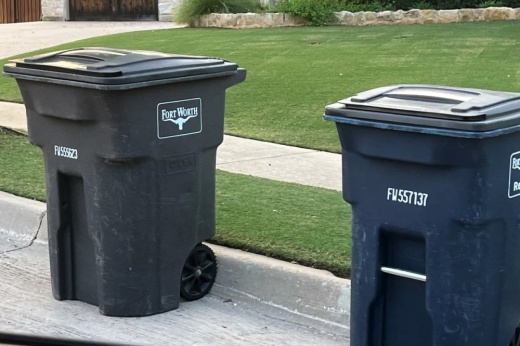What’s happening?
At the Oct. 14 Fort Worth City Council meeting, Environmental Services Director Cody Whittenburg said planning with the city’s strategic waste management partners will be key leading up to the city’s landfill reaching capacity.
“After 60 years of [operational] life, we know [the landfill] will fill up and reach its capacity in 11 years and we’ve got to start planning for the future,” Whittenburg said.
According to city documents, the city partners with Republic Services as one of its waste management contractors. Republic Services will continue to operate the landfill into 2036 and then maintain it after its closure.
Whittenburg said that in light of the landfill closure, future waste disposal strategies could include facilities such as:
- Material recovery facilities
- Transfer stations
- Landfills
Whittenburg explained the city’s solid waste fund relies on customer revenue to cover operating costs. To keep the fund stable, officials plan gradual rate increases. The city’s capital plan is also part of the department’s long-term strategy to support the city’s waste disposal infrastructure.
As the planning process moves forward, Whittenburg touted the importance of getting feedback from essential groups. He said four key groups staff members are collaborating with include:
- Other city departments
- Community members/customers
- Solid waste service providers
- Other cities in the region
What else?
According to city documents, the city of Fort Worth collects 374,000 tons of solid waste per year. Whittenburg said this solid waste is comprised of four components:
- 230,000 tons of garbage
- 61,000 tons of recycling
- 50,000 tons of bulk items
- 33,000 tons of yard waste
“Around 18%, or 47,000 tons of [recyclable] material is going to the landfill that could have been redirected,” Whittenburg said.
He added that when residents recycle, the results include:
- Reduced landfill use
- Reduced pollution
- Saving energy and natural resources
- Promoting a clean community
“There’s a net financial benefit of $11.87 per ton,” Whittenburg said. “It’s more economically sensible to recycle.”





